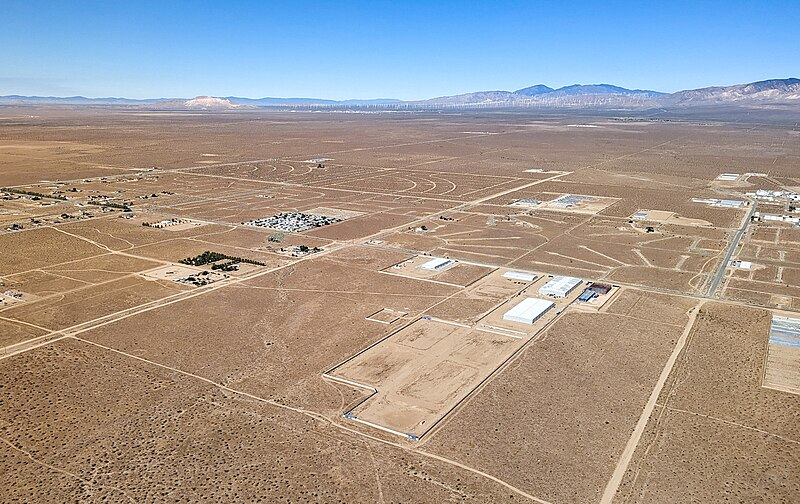WITAF.
At best, he doesn’t understand what a Hybrid Car is.
Wait till he hears about gasoline
The material safety sheet for gasoline is a lot scarier than the one for hydrogen
‘THE ONE TIP FUEL MAKERS DON’T WANT YOU TO KNOW ABOUT!’
msds
The worst part about the gas you put in your car are all the additives they cram in there. Gas for small planes you check it by sticking your finger in it to make sure it’s full. Your finger doesn’t even smell afterwards unlike car gas where you stink for a week. Also no skin cancer! Next you drain some from the bottom to make sure there’s no water. After a quick visual inspection, you just pour it out onto the ground.
Gas for small planes you check it by sticking your finger in it to make sure it’s full.
I know some people have different practices, but myself and the pilots I’ve known use a dipstick to check fuel level. You do you, but remember that aviation fuel contains lead, which is easily absorbed through the skin. I always use gloves when checking fuel.
I can’t deny that most pilots don’t use gloves, that there are fewer additives in aviation fuel, nor that we are trained to dump checked fuel on the ground. But I don’t see those as “green flags” for aviation fuel.
For anyone interested, here’s the Material Safety Data Sheet for aviation fuel. For comparison, here’s the MSDS for automotive gasoline. I wouldn’t want to touch either without skin protection.
Real funny, because LEAD is an additive for avgas…
All natural, organic, free-range, gluten-free lead! With a name you can pronounce. Couldn’t harm a fly. Look at me! I turned out fine!!
From watching movies from the 60s-2020s, internal COMBUSTION engine’s also have a tendency to explode. I haven’t seen many hydrogen using vehicles exploding since the Hindenburg.
Theoretically a hydrogen fuel vehicle could explode because it has a pretty large tank of hydrogen on board. Practically it’ll just burn up because it won’t all be released at once. And I’ve never heard of a single case of that actually happening in the field. And you can be damn sure it would be all over the news.
I have a hydrogen car. H2 explodes more readily than it burns. The containment tanks are designed to mitigate this, and they are routinely tested with high-caliber rifles to make sure. There are YouTube videos of the tests.
Are they routinely tested in high impact crashes too? Slamming into a phone pole might be more energy than a rifle round.
EV battery packs are also designed to mitigate thermal runaway events, even down to Tesla packs making every cell connection a fuse on case of issues. That doesn’t stop them from catching fire anyway after some accidents.
Since hydrogen is so light though, it escapes into the atmosphere before collecting enough to explode in a car. BMW claimed this way back in the 90s when it was experimenting with the gas.
There’s probably more of a danger of the tank and in hydrogen cars bursting, since the hydrogen is stored at relatively high pressures. But the gas could easily escape without igniting.
Obviously anything is possible when you are storing energy as densely as possible. And one of the highest density energies we store is still hydrocarbons.
It’s also a pressure vessel. Rupturing that might be scarier than just fire.
Pretty sure the Hindenburg would have gone down the same even if it was filed with helium. Not that the hydrogen helped matters, just the initial problem wasn’t hydrogen’s fault.
No… No, that’s not true. Yes, hydrogen and helium are both lighter than air. But that’s pretty much where the similarities end. Hydrogen is unstable, which is why it can explosively combust when mixed with as little as 4% oxygen. Helium is stable, helium won’t burn. So if it had been filled with helium, it might have crashed. But it definitely wouldn’t have been a catastrophic fireball…
The Hindenburg’s skin was also highly flammable. Regardless of what gas it contained it would still have burned as fast.
The leaking hydrogen was just the initial fuel that the static arc ignited.
One the skin was burning it was over.
It wouldn’t have. However, kind of ironically if it was filled with helium, it would have never gone up. Helium doesn’t have the same amount of lifting power as hydrogen.
Downvotes for being correct, or at least, not entirely wrong. The exact cause may never be determined, but there are a lot of plausible theories that the fire did not start with hydrogen, but rather the outer coating.
If nothing else, hydrogen can’t burn without oxygen, and there’s very little oxygen inside the envelope. Something else has to leak first.
Thank you. After the deluge I did hit up Wikipedia. The skin was coated in flammable material as I remembered. It did say the skin being a major factor was controversial and that the burn patterns didn’t indicate that to be likely, which is fine. But just the blanket downvotes with no one addressing that is annoying. It stifles any conversation. Were I not a naturally curious person I wouldn’t have looked into it further. I’m sure plenty of the downvotes came from people that probably didn’t even know about the static discharge part and still don’t know because they just downvoted and moved on in their ignorance.
Lil bro remembers being traumatized by the hindenburg explosion when he was growing up. Fucking luddite.
Did you know: the Hindenburg was built before plastics were a thing. Most think that the metal shell held the gas but no. It full of animal bladders/intestines that were filled with hydrogen and tied up .
What hydrogen cars?
The sum total of Toyota and whoever else’s efforts still amount to an inconsequential fraction of the vehicles currently in operation, probably not even a notable portion of a percentage point.
We’re dealing with a man who saw pictures of a spray bottle and the sun and decided it meant injecting bleach and putting a lightbulb inside you. Do not presume he thinks rationally.
Broken clocks and whatnot. Hydrogen cars are trash and completely unfeasible, not because they explode but because of the terrible efficiency and fueling problems
And would need a huge new infrastructure for production and distribution. I’m convinced that most of the push for hydrogen is from oil and gas interests wanting to have essentially the same business they do now.
Clearly one of the advantages of EVs is how cheap and easy the infrastructure is compared to any other alternative (and somehow we’re still finding it difficult)
EV infrastructure would be better if it was actually standardized and regulated to be like gas stations.
Right now, we have legacy charging ports and the new, now standard, Tesla port. So you have to make sure the charger will even fit your car. And, because we live in the future, everything is enshitified. Different charging companies have different apps that you need to download to pay for charging, many chargers are down for maintenance, but even with the app, there’s no guarantee you’ll be warned about the charger being down.
Chargers should be like gas pumps. Put in a card, put the plug in your car, and then wait for it to charge. Every plug should fit every car. The system that sprang up without government intervention is clearly insufficient, and needs to be standardized from the ground up.
- Most manufacturers pledged to support NACs starting next year, and a couple already have. Also, Tesla is adding the older standard to at least some chargers
- We might be losing “pay at the pump”, that was required for federal money to build out charging. Now we’re switching to NACs but Tesla hasn’t supported “pay at the pump” and I don’t know if that’s still a requirement. While it is actually more convenient to use the app and Tesla has been consumer friendly so far, I’m uncomfortable with yet another app holding my credit card hostage just so I can adult.
- we should focus on rest areas on highways, both to build out the trip charger network and as something that can more easily be standardized/influenced
To add to that the system’s handling them degrade quite quickly if you think maintenance cost for a normal vehicle is difficult you should see one that has to handle high pressure hydrogen
and the need to build an entire new distribution network, but one that handles cryogenic fuel.
nah, no thanks.
Actually they can retro fit oil and gas infrastructure to work with hydrogen. Guess who is pushing the “huRdUGyun iS thE fuTuRe” narrative. Yeah the people who own the oil and gas infra.
Actually they can retro fit oil and gas infrastructure to work with hydrogen.
citation requested because this defies literal physics. I’d give you the benefit of the doubt if you suggested propane, but gasoline storage is NOT cryogenic, would not hold large enough volumes of it, and aren’t capable of the pressures involved.
Sure, you can bury a hydrogen tank and support plumbing NEXT to a gasoline storage tank, but you still have to deal with handling cryogenic fuel. Do they really claim that?
So even if that’s an agenda, it’s fucking bent. Green Hydrogen literally ISN’T.
Seems like every solution the petroleum industry pushes is really just another excuse to pump more oil to burn in an already choking atmosphere.
fuuuuuck.
But nobody’s actually taking about subsidising or making them, so there’s no point in ranting about it.
Hydrogen buses were a thing for a while, but it’s probably cheaper to just go with batteries now.
Feels like something that was surpassed before it ever got popular.
I could see hydrogen being useful for some applications where you don’t need the public infrastructure. Buses that refuel at a central depot could be one of those if there’s issues with battery electric being too heavy and stuff like that.
But for ordinary people that can charge their car at home or work without needing to go to a third place it’s hard to beat that convenience.
Hydrogen also has a history of being pushed by fossil fuel companies, probably because initially most hydrogen would be generated using fossil fuels, so it’s not exactly a fast track to reducing emissions.
Yeah, the home and workplace charging has basically won the day for anyone that doesn’t spend most of their life driving.
Slightly sidetracking, I suspect nuclear power is also being pushed by the fossil fuel club as well, after 40 years of going “But Chernobyl!” Simply because it keeps people on gas and coal for about 20-30 years while it all gets built, is enormously expensive, and probably wouldn’t be enough to meet demand anyway. And they can also veto any large green projects with “But the nuclear is on the way!”
Yeah, that’s definitely been the strategy of the liberals/nationals in Australia. In a country that historically has never had nuclear, has a bunch of state and federal bans against nuclear and no infrastructure at all to deal with nuclear waste or fuel, they want to build a nuclear plants (oh , and those will be micro plants which don’t actually exist anywhere!) instead of continuing to build more renewables. And they’re pushing hydrogen as well.
It’s actually disgusting that an industry that knows it has no long term future decided that they should just delay the inevitable for just a few more years/decades at the cost of our only planet. I just can’t fathom being this fucked in the head to make that calculation.
Hydrogen fuel cells actually show quite a bit of promise. Mostly for large trucks. Batteries have a scaling issue. A battery powered 18-wheeler needs a much larger battery for a much shorter range.
Adding more load means you need more battery, and that larger battery is just more load that you need to haul.
This is sort of true with everything, but the important note is that a full battery and empty battery weigh the same.
Anyway. Commercial use is where it makes sense. There are actually a few other technologies that make sense in the commercial transportation space. Like ammonia.
Keeping these rather dangerous fuels commercial also allows for more strict safety standards.
Hydrogen cars aren’t even something likely to catch on at this point anyway I’d think, despite Toyota’s attempts to the contrary. Battery-electric cars have improved a lot of late making the advantage in range from using an energy dense chemical fuel less apparent, and hydrogen has to deal with both lower energy efficiency and the fact that hydrogen storage is rather difficult, while the infrastructure getting built has overwhelmingly been EV charging rather than hydrogen filling stations.
Hydrogen is completely unsuitable for land based transportation because building the infrastructure and actually making the stuff is pretty hard to do at scale. The electricity grid, on the other hand, already exists. And once you’ve built the charger, you don’t need to send a truck to refill it on a regular basis.
H2 is way better for trucks and planes than batteries, because even with the reinforced tanks it doesn’t weigh much, and the refueling does not take long.
I agree that battery electric is probably the way to go for consumer passenger vehicles, though.
/owns a hydrogen car
*if we can find a clean way of producing H2 at scale
Electrolysis works, though as with everything, nuclear is the best option.
electrolysis requires a lot of input energy so it’s not very efficient, and nuclear is still very expensive and politically contentious. And if we were somehow able to get new nuclear plants built they’d be put to much better use replacing coal plants than for H2 production.
Sure, but electrolysis is only around 30% efficient — so you need 3 units of energy to produce the hydrogen to drive a vehicle x distance, whereas a BEV would only need one unit to travel the same distance.
That is, you can use the electricity generated from that nuclear power plant to drive three times the distance with a fleet of BEVs than you’ll get out of a fleet of hydrogen powered vehicles.
Like I said the problem is the infrastructure. Building this out at scale would require a massive effort that nobody will want to pay for. And rightly so because electric trucks are already a thing and will get a lot more popular in the next few years.
To piggyback off this though, there are areas where the infrastructure would make sense, like long distance shipping trucks and busses that have pretty well defined areas that they could regularly dock and refuel at, and those are the exact situations where electric is struggling the most.
All to say, the research into hydrogen powered vehicles isn’t useless, even if it’s not going to offer anything at the consumer level.
Electric trucks are lugging around their batteries moreso than their payload.
The problem is that batteries keep improving–about double capacity by weight every 10 to 15 years. I’ve been following hydrogen development for decades now, and fundamental problems in storage and efficiency have yet to be solved. If you were to start building hydrogen truck infrastructure today, batteries would catch up and everyone would just use that.
But ultimately, we should look to replace 90% of long haul trucking with trains.
The electricity grid, on the other hand, already exists
…largely in the same appalling, copper-line state it has been in since its original installation 100 years ago. Which is woefully and catastrophically unprepared for an America full of EV drivers.
Not disagreeing with your core point, but just saying. The American electrical backbone system is absolutely in no way prepared for a mass shift to electric vehicles at this time. We’re getting there, and if EV adoption continues at its current pace we run a pretty good chance of being fine so long as proper upgrades are actually being made, but we’re not there yet and demand for EVs absolutely could still outpace the ability of our electrical infrastructure to support them.
I can see it making sense for long distance hauling, semi trucks for example, where batteries can’t really compete very well. But for the average person that doesn’t need to put on thousands of miles in a short time hydrogen doesn’t make much sense.
The raw material waste/cost/emissions to produce those batteries isn’t great though. There’s not really much that hydrogen can’t do better if the infrastructure was in place and the storage/safety stuff is worked out.
Hydrogen for cars is not… let’s just say it’s not great.
Granted: the cars drive very well (try it if you have the chance) and the fuel cells give them a serious range. However, distribution of fuel similar to regular gas is hard. Storage is dangerous, and pipelines continuously leak (H2 molecules are very small). Hydrogen gas cannot be mixed with stinky stuff that will warn you if the gas is leaking. It is much harder to keep under pressure than oil or regular natural gas. And last but not least: it is very inefficient to generate, the electricity used to generate it from (sea)water is significant and could have been used to charge batteries directly (note that it’s currently mostly distilled from natural gas, about 90% iirc). Mind you: I know it’s useful, just not for cars.It is fundamentally less efficient to run electrolysis on water to produce hydrogen, and then reverse the process again in a fuel cell to produce electricity to turn a motor, vs taking the electricity used for that electrolysis and storing it in a battery that is then taken back out to turn a motor. Granted, modern lithium battery chemistry isn’t the cleanest thing to extract and use, but it’s also not the only possible battery chemistry, just the one currently most used for vehicle batteries. It also doesn’t allow for certain benefits to BEV like home charging (I mean technically one could run a hydrogen line to one’s house, but that doesn’t seem likely). The only scenario I can think of for hydrogen cars taking off is if the needed infrastructure was built out for something else and so was readily available. I could maybe see that if hydrogen ends up getting used as the solution for decarbonized aviation fuel, but my understanding was that it (along with basically every other proposed tech for that admittedly) had some pretty serious cost drawbacks and so there’s no garuntee of it getting built out for even that application.
Wow, even when he’s accidentally correct (hydrogen cars really aren’t good), his “reasoning” (if you can call it that) is dumb as Hell.
The real problem with hydrogen cars (aside from H2 storage being a pain in the ass) is that they’re mostly a greenwashing scam, since the vast majority of H2 produced is not “green” hydrogen produced via electrolysis powered by renewables, but instead so-called “blue” hydrogen produced from natural gas or coal. If you’re gonna do that, you might as well just fucking burn the hydrocarbon in an internal combustion engine directly and save yourself all the damn hassle!
Give me my coal powered steam car, assholes!
The part that pisses me off the most about this is that in states that have a very heavy amount of Renewables like let’s say California they are literally curtailing insane amounts of solar because there’s literally nowhere for them to put it.
Meanwhile they will simultaneously say they can’t do green hydrogen because it takes so much energy and isn’t super efficient, they will also say the same thing about desalination it needs too much energy where are they supposed to get it from. Motherfucker you are literally curtailing solar constantly just fucking dump it into one of those two things who cares if it’s not the most efficient 20% efficiency is better than 0% efficiency
(ノಠ益ಠ)ノ彡┻━┻
In… California they are literally curtailing insane amounts of solar because there’s literally nowhere for them to put it.
Um…

?
They meant “no where to put the power”, which is true (although it’s not a new problem by any stretch and there’s a lot going on to address it).
I think the idea is that if you create the demand for hydrogen, then there will be more incentive to produce cheap and environmentally friendly hydrogen.
Even at 100% efficiency when producing, the efficiency of the car will still be much lower than battery (even batteries from decades ago were 90%+ efficient).
Electric distribution basically abstract the energy source away from the car (you can use any battery chemistry). You can also feed power back into the grid
With hydrogen, realistically, you just need to pray you improve it long term. Because at the moment it’s an efficiency suckfest.
But it’s awesome for petrol companies and dodgy salespeople who want to provide cheap fuel that continues to F**k us whilst undercutting green alternatives
We need to pivot the goal for hydrogen …… there are fossil fuel uses now that batteries can’t serve and hydrogen might be a good substitute.
Instead of saying that even with feee electricity it’s too expensive to make green hydrogen for cars, let’s use that free electricity to make synthetic aviation fuel Or at least create hydrogen as a precursor
It’s not about free electricity though. It’s about efficiency
It’s not about cost
The facts are, with hydrogen, you waste at least 40% of the energy excluding transport due to inefficiencies and manufacture and fuel wastage . So you need to build a lot more solar panels. You also need clean water to do it
With electric, you waste less than 10%
We don’t have hydrogen planes yet, and it might not really be that feasible (there are a lot of considerations for planes. I’ve actually got a pilot licence).
With hydrogen, you need almost twice the solar panels to produce the same results
You also need to consider, battery technologies are still early days. If lithium at the moment supports 1000km of travel, later generation lithium air can support 12000km with the same space.
That’s why hydrogen has such limited applications too. Because even if you increase the density of lithium 2x, most applications where hydrogen benefits disappears
But in reality we’d probably shift from lithium anyway I’m guessing
Hydrogen still hugely better than gas though, and Trump is an idiot lol
Let’s start by agreeing Trump is an idiot and battery electric vehicle technology covers personal transportation. We need to move as completely as possible to renewable energy.
However
- current BEV technology can’t replace aviation, shipping, cargo trains, construction and farming equipment, and we don’t really have a good solution yet. We’ll keep improving related technology and see how far it goes but we may need other choices.
- renewable energy is intermittent and current grid storage technology does not scale. It’s great to stabilize the grid and allow peaked plants to come online but not to, for example, last through the night until solar is again available. We’ll keep improving related technology and see how far it goes, but we may need other choices
One possible choice to cover both storage and creation of renewable fuel for the cases where batteries do not scale, is hydrogen. We do need to overbuild renewables, because production is affected by the weather, plus we need to produce enough energy in part of a day to run everything for a full day. Production of hydrogen might let us productively convert that daylight (for solar) energy into nighttime energy, and might help other areas where batteries don’t scale. And it doesn’t have to be hydrogen directly: perhaps we need a liquid fuel that works at room temperature and green hydrogen can be a precursor to methane or some variation of synfuel. That can be stored or manipulated more regularly. A tank of green synfuel might be an effective storage for turning daylight energy into nighttime time energy. We already have an approved synthetic aviation fuel - using renewable energy to create that might be more efficient than the more difficult task of scaling batteries for aviation
While I completely agree on the limitations of green hydrogen as a primary fuel, I also see that there are many usages that neither renewable nor storage nor batteries can yet scale for. Hydrogen as a storage medium is no worse than those options
And natural gas was supposed to be an transition energy source to get America off coal so that we could transition to renewable energy. History has not been kind to the “if we can just implement this greenwashed fossil fuel process, it’ll really allow us to unlock green energy potential down the road” promise
It’s kinda like software development…every experienced dev is aware that when management says we’ll do it shitty for now and fix it later that later never comes.
I’m pretty sure the basic thermodynamics of it are against truly green hydrogen production ever becoming cheaper than the dirty business of producing it by reforming methane from natural gas, unless basically all fossil fuel subsidies are someday cancelled – or else after the energy cost of energy gets so high (in other words, the energy return on energy invested falls so low) that it’s no longer practical to extract fossil fuel from the ground regardless of price or any other economic factor; – but by that point in the future, that same scarcity will have permanently crashed the world economy thus humanity will already be in forced deindustrialization. I could go on…
The thing is, hydrogen is a byproduct of damn near every industry. It’s usually just released into the atmosphere because it’s a pain in the ass to capture and store and isn’t worth much. If it starts being in demand, you can bet your ass they’ll start trying to gather it.
Remember, though, that it is currently profitable to reform hydrogen out of methane, at the same time as it’s not profitable to contain and sell ‘byproduct’ hydrogen. There are sure to be reasons why, and they might be fairly durable reasons that don’t change much even as the demand for hydrogen increases. I’m no expert on this so I won’t speculate too much on what those reasons might be – maybe factors related to scale and logistics?
Hmm, dumbass gives rant against green energy, I see rise in dumbass arguments against green solutions, hmm.
Could he not? It’s not just that he’s wrong. It’s that we’ll have to defend the factual errors around a deadend solution.
Because we’ve never had vehicles powered by a highly volatile fuel source before. /s
Just wait till he finds out how modern combustion engines work
Toyota didn’t like that.
Change in rhetoric since Elon jumped on board
Weird, the person that would have a personal stake in having hydrogen cars fail.
Hydrogen cars didn’t need any help with failing. I’m sure there’s niche applications for it, but battery electric has basically won that particular fight.
Clearly a coincidence, a multiple bankrupt billionaire wouldn’t sell out
Nuking hurricanes is cool though.
I actually read the safety reports from the NTSB, and they did an awful lot of testing on this Toyota hydrogen fuel cell cars. Even far surpassing the test parameters, the fuel cells remained intact and undamaged. In fact, it was pretty incredible.
nothing short of a .50 Cal armour piercing bullet gets through those tanks. And even then a chance of an explosion is very very low, it would probably just produce a fire just like gasoline (which can also explode under the right conditions). But that safety requirement is still a barrier, as it raises the cost of an already extremely expensive technology. Personally I can see hydrogen catching on for some niche applications, but for every day driving I don’t see the price ever going low enough for it to make sense compared to electric.
hydrogen cars “explode.”
Sounds like he’s getting reality mixed up with Fallout.

















